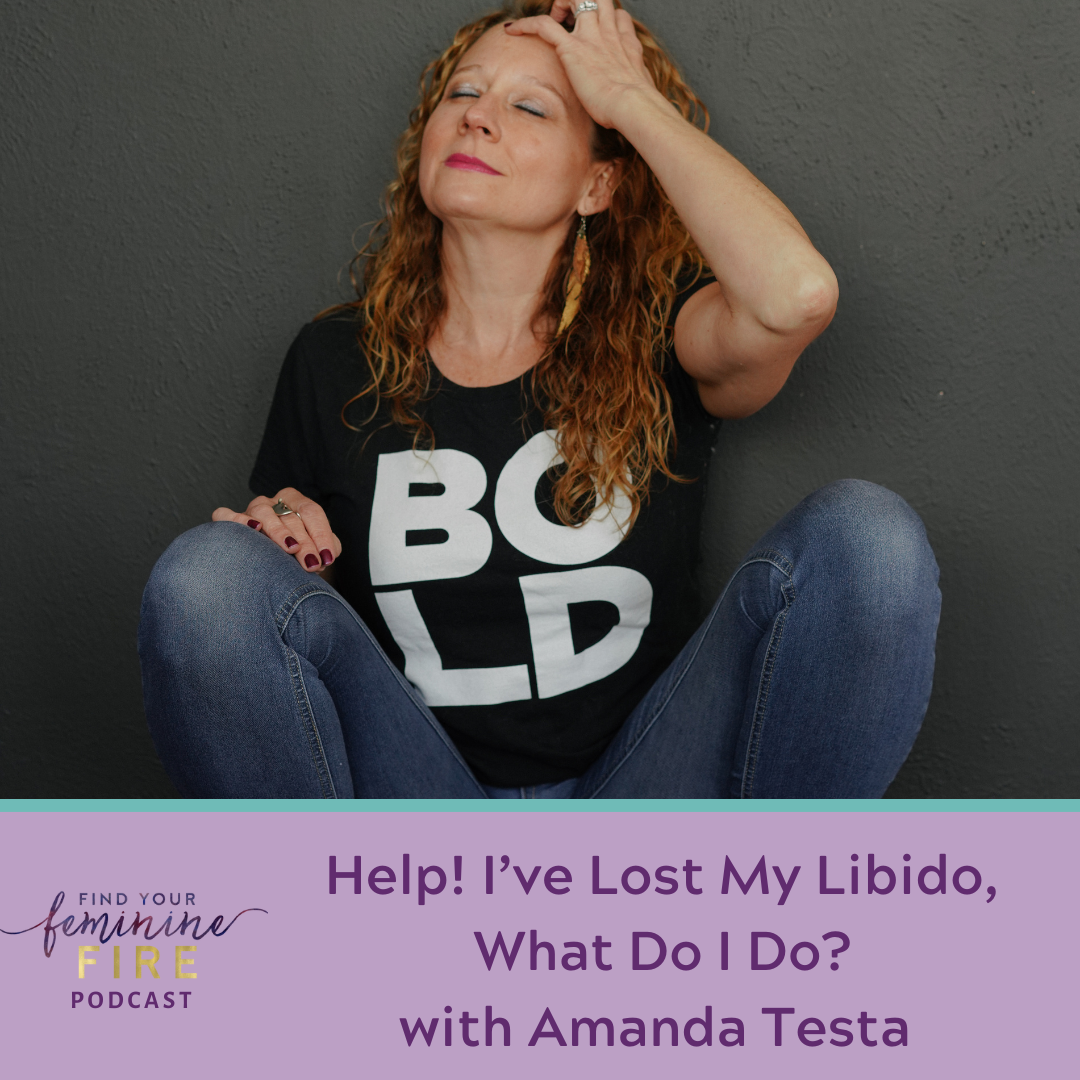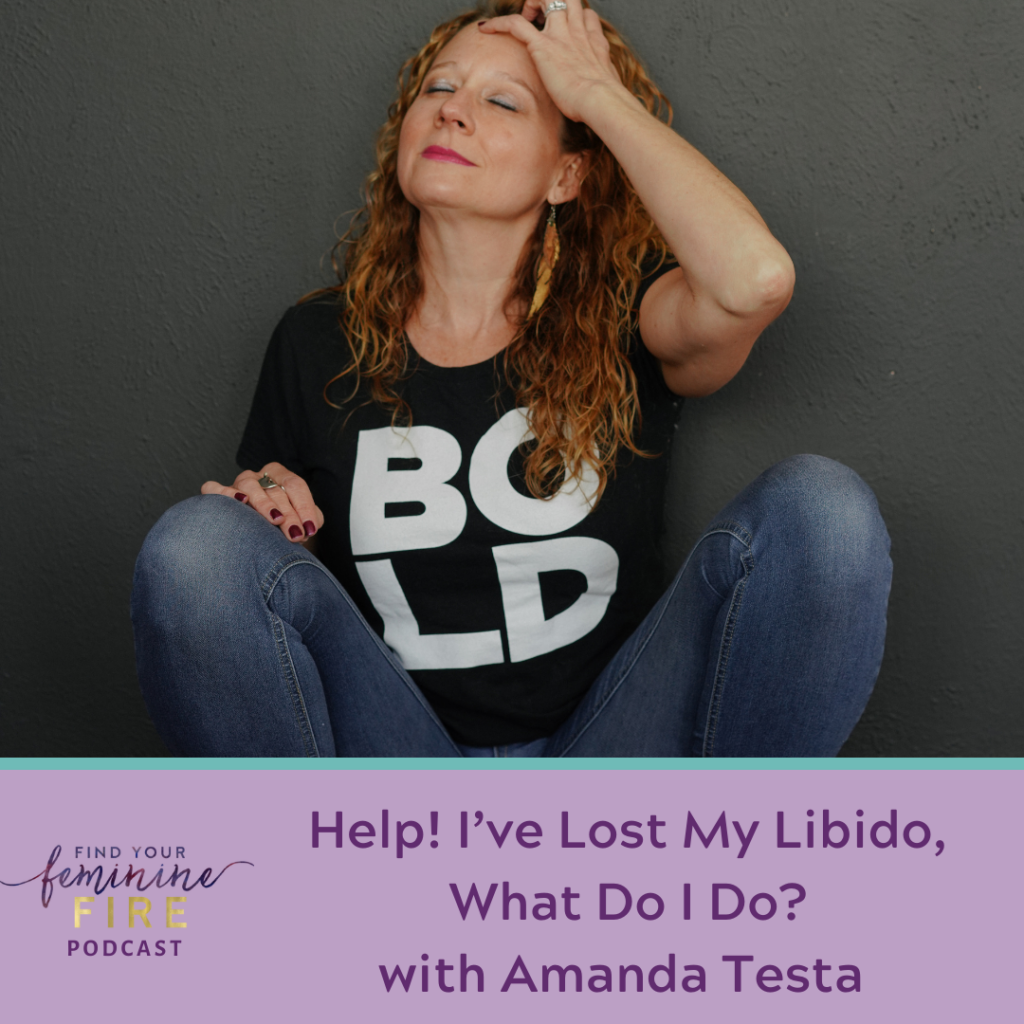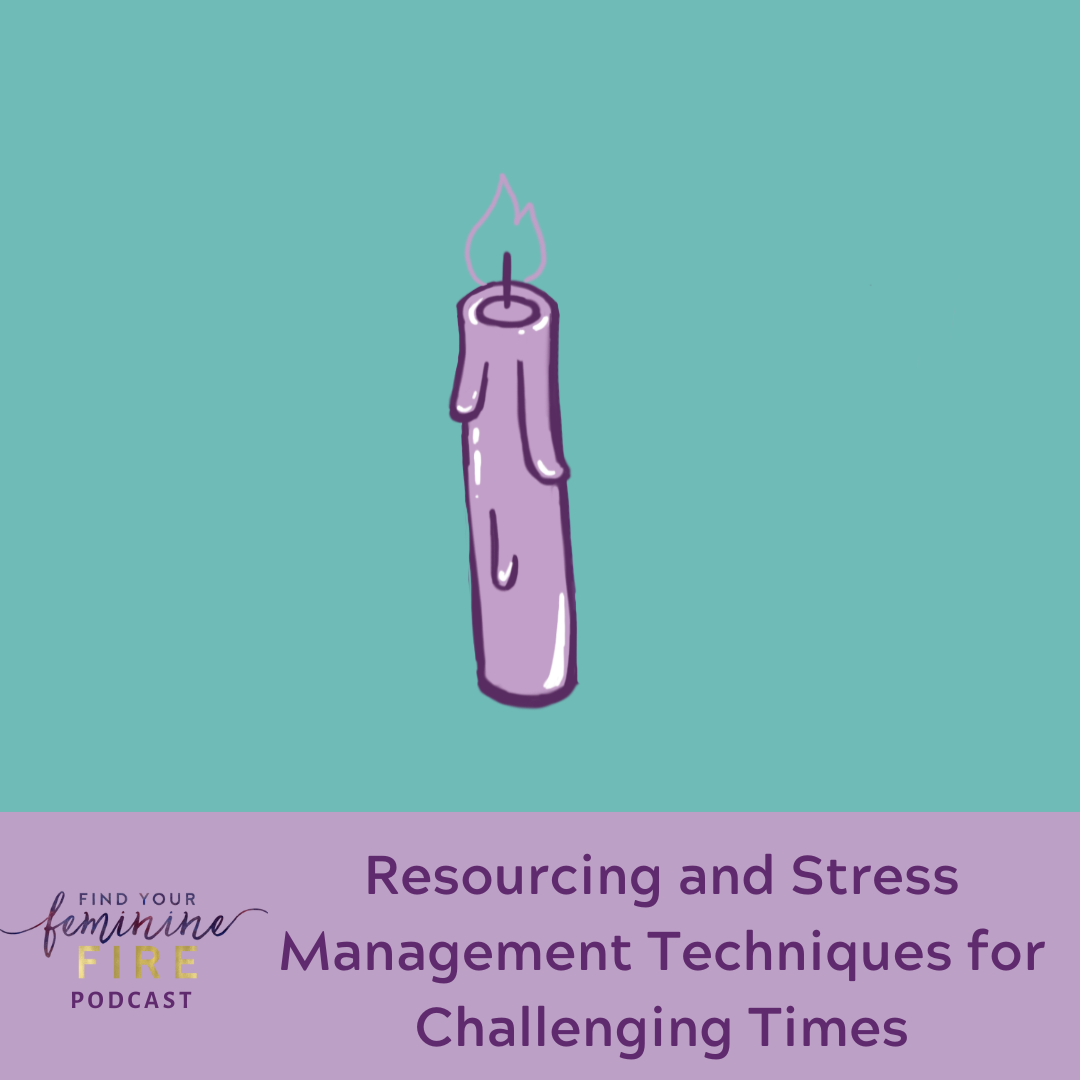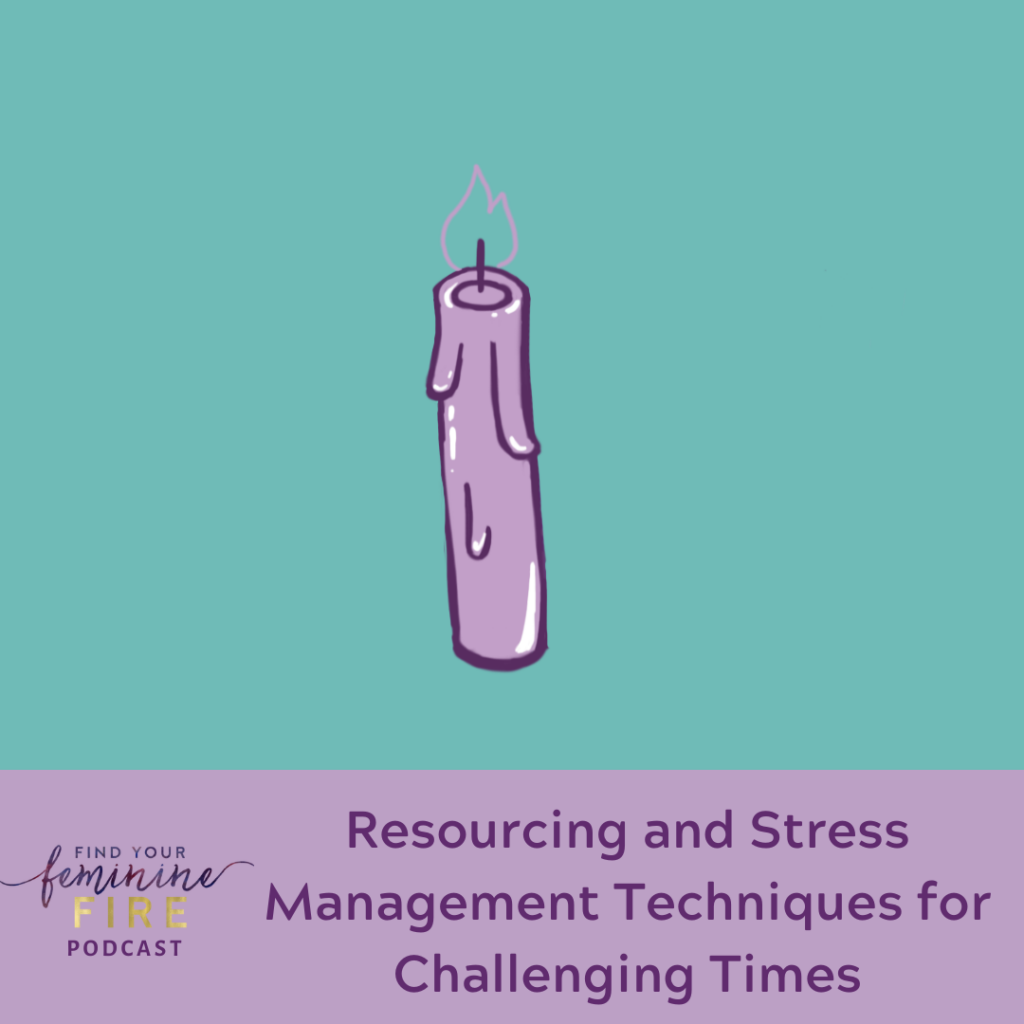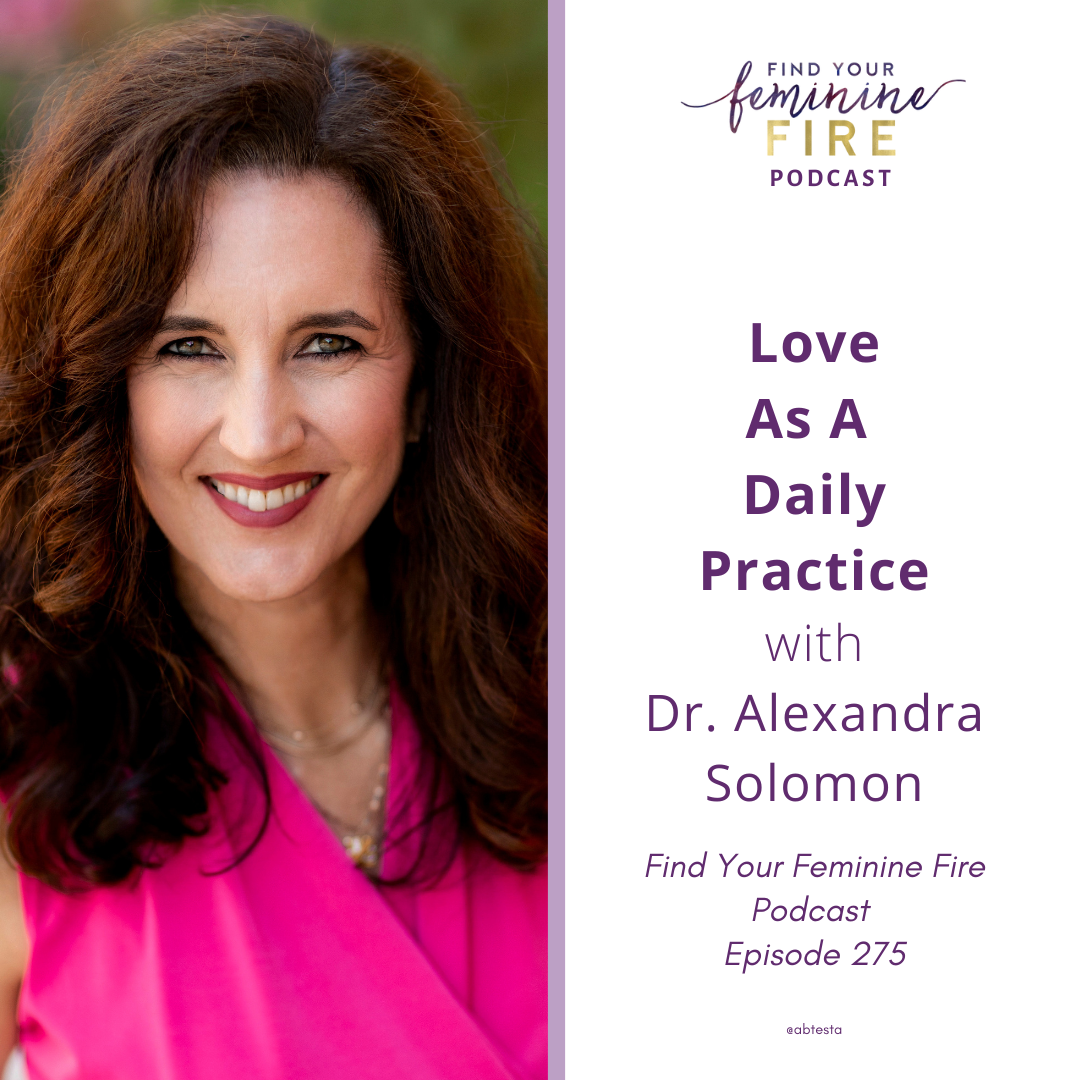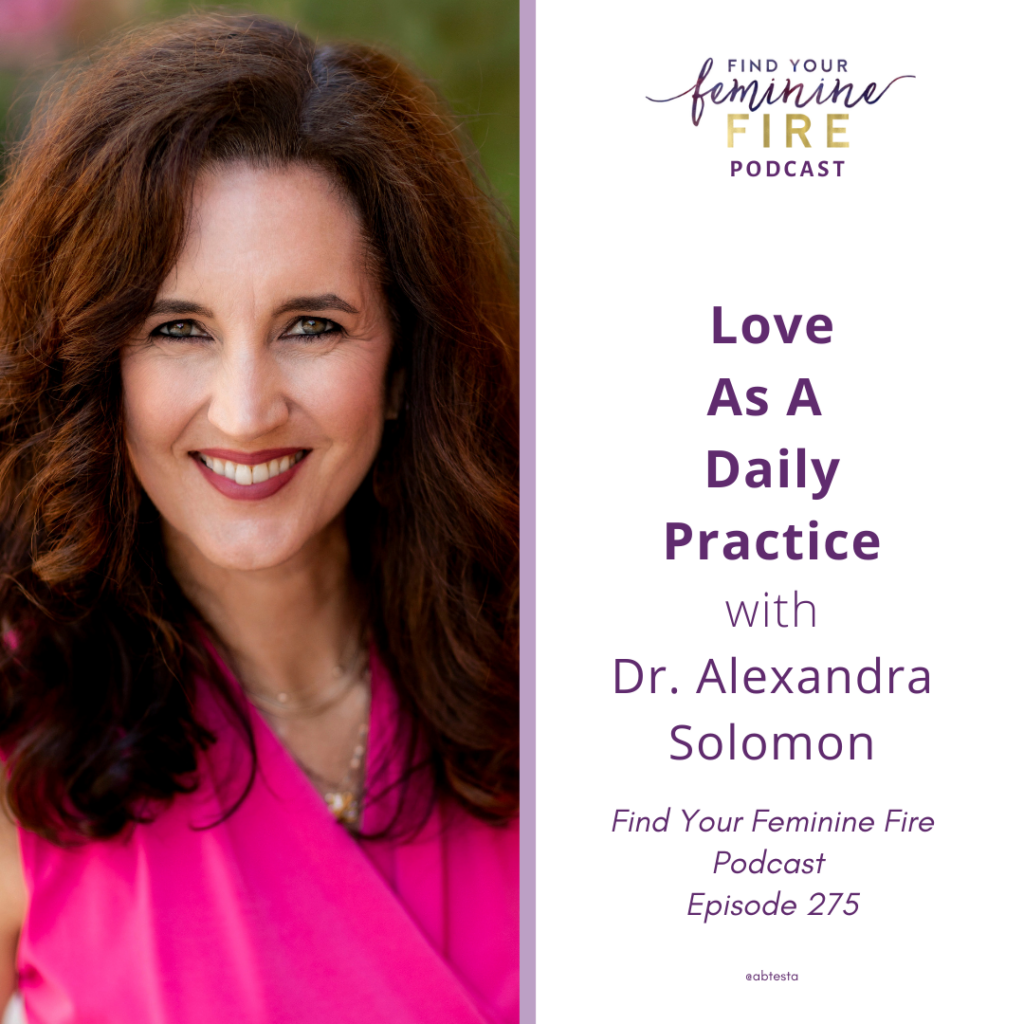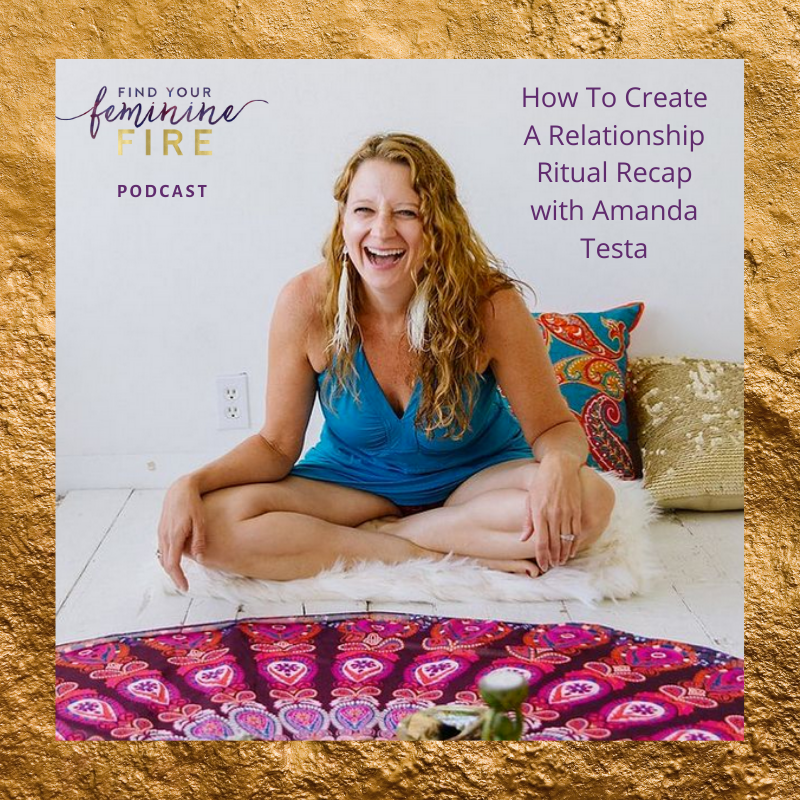
Creating a Ritual Recap + intentions for your RelationshipWith Amanda Testa
What does your relationship need to flourish in 2024?
This episode is a must-listen if you’re looking to deepen your understanding of yourself and your relationships. Creating an intentional ritual around reflecting on your relationship is about cultivating a practice of mindful reflection and intentional living. Whether you’re seeking to improve your relationship with yourself, your partner, or your community, this episode offers valuable insights and practical tools to help you on your journey.
Listen in to discover:
✨How to set up a ritual space, and some suggestions for year end rituals.
✨What it means to “Groundscape” in your life, and how to reflect through this lens.
✨How to cultivate wisdom and power in the face of traumas and challenges.
✨Get the prompts I personally use to create a relationship vision,
And much more!
👉Download your 2023 Year in Review Journal HERE.
Join the Planting Your Seeds of Desire Workshop for FREE! RSVP HERE.
(Complete transcript below)
Listen in here on Spotify, or Apple Podcasts

JOIN IN THE DISCUSSION ON THIS EPISODE AND MORE IN MY FREE FACEBOOK GROUP, FIND YOUR FEMININE FIRE HERE.
👉Download your 2023 Year in Review Journal HERE.
Join the Planting Your Seeds of Desire Workshop for FREE! RSVP HERE.
Want more support from Amanda? Schedule a confidential 1-1 call with Amanda here.
In this 45 min call, we’re going to identify your #1 block to pleasure, why it’s showing up in the way it is, and what to do to turn it around. After doing this work for almost a decade, I can quickly identify the patterns holding you back, and show you the steps to change it. Permission to reach out even if it feels scary. Permission to reach out even if you aren’t even sure you want to do this work. Permission to reach out to explore if this is right for you, no strings or pushy sales tactics here.
Have a topic or question you’d like Amanda to address on a future episode? Submit it on this anonymous form.
Amanda Testa (00:01):Hello and welcome to the Find Your Feminine Fire Podcast. I am your host, Amanda Testa. I am a sex, love and relationship coach, and in this podcast, my guests and I talk sex, love, and relationships and everything that lights you up from the inside out. Welcome. Today we’re diving into how to move into 2024 with the intention of creating a very solid relationship with yourself, and with the ones you love. So tune in as I’m going to dive into how to do a little ritual recap of your past year and sow your Seeds of desire for 2024. Now, I know that you see this a lot this time of year because it can be so easy to just move through our life and keep going and focus on the things that we have right in front of us, but it is so important to pause every once in a while and kind of see the view of the forest from the trees versus being down on the forest floor, rushing around, trying to gather nuts and hurry around to the next thing.(01:07):Survival Moding is to kind of pause and reflect and review and think about what you want for the coming year. It can be such a very powerful thing to do, easy to do, but we don’t often take the time to do it. And rituals are so important because what they really do is they kind of help create closure. They give your subconscious mind a sense of closure, and so it can be very simple to do, but I’ll share with you some of the things that I like to do and you can take what you want and leave what you don’t. As I always say,
If you want to dive deeper into the Seeds of Desire ritual, I’m hosting a live workshop where we’re going to be doing just this, and I’ll put the link to that on that webpage, amanda testa.com/yearinreview And you can join for the Sowing Your Seeds of Desire Ritual on January 13th, 2024, 10:00 AM to noon mountain time, and that is going to be another powerful ritual.We’re going to really set the sacred space. There’s a whole beautiful ritual that I’m going to walk you through on planting your seeds of desire. And it’s so good.
There’s so many lessons we can glean as we reflect on our experiences. So one of the ways I like to do my year-end review is first of all, take a look, gather the things I might want to look through. I gather my calendar, I get my journal and I get my phone. I love to look through my photos. Photos are such a great way to kind of reflect and I know it can be easy. My husband and I laugh. He feels like we always are just on a treadmill. Sometimes it can feel so busy, but when we pause and look back at the year and we were looking at all the things that we did and all the experiences that we actually enjoyed together as a family and all the one-on-one time, we actually made for each other. It was huge to pause and reflect on that, taking all the things that you need and creating a little sacred environment for yourself. So maybe that looks like just(02:58):Cleaning your desk or wherever you’re going to sit, cleaning off the table so you can have a quiet space. Maybe that looks like lighting a candle, maybe that looks like playing some music. Maybe that looks like putting on something that makes you feel beautiful. Maybe that looks like rifting, some essential oils, but just something to create this environment that tells your brain, okay, something special is happening here so I better pay attention. So when you start this ritual review, I love creating that sacred space first and foremost. And once you have your space set up, then I like to do it kind of like by month. So if it feels like overwhelming, then you can break it out into a couple of days. You don’t have to do it all at once. You get to choose how this goes. But typically I like to break it down by month.(03:43):So I look through my calendar, what did I do? What were the important meetings? What were the important milestones? Did we have a trip? Did we have something exciting that happened with our kid or something like that. So I look back through in my journal, I sometimes peek through that too. Granted, that can feel a little overwhelming to me. So I often just look at my calendar and then just see what you want to celebrate about that month. Maybe look at a challenge that might’ve coming up and reflect on that. What did you learn from that? The key with life is there’s always going to be the shit that’s hitting the fans somewhere, somewhere. It’s hard, it’s challenging. That’s just life. And we’re going to have hard times. We’re going to have those times where the unexpected happens or where it’s challenging. And what we can do is just kind of look back and maybe you’re in a time like that right now and just kind of honor where you are.(04:34):Just honor the season you’re in. And sometimes that can just be all you can do. Just acknowledge, wow, this is a challenging time and I know I’ll get through it. Or maybe this is a challenging time and I need to find some more support. Or maybe we had a really challenging time when this happened, but here’s what we did. We called friends for support. We got together as a family and talked about solutions. We sought help from a coach or a therapist. We did the things that we needed and we moved past it. And then you can kind of see, okay, well that was a challenge and we moved past it. Let’s celebrate what we did. That worked right. That’s kind of how I like to do that. And if there was a celebration that was really, if there’s a celebration of something great that happened that month, I like to look at that too and say, wow, how wonderful was it that we got to go away for the weekend and that we got really connect with one another?(05:23):And how funny it was when we had this inside joke that happened in the car. You can just kind of put yourself back into a moment that felt really good. What about it felt good? What about it made you smile? What was the environment? What was the temperature? What did you notice on your skin? What were you smelling? What were you tasting? What were you hearing? And put yourself back into those pleasant moments because our brain doesn’t really know the difference between it happening in the past or it happening right now. And then you can have that experience again. So it’s such a great way to retrain your brain to focus on what wentAmanda Testa (05:56):Well, what you accomplished, and what you learned, what you’re proud of. And I think the other thing that I like to call in when I’m doing this, there’s an archetype that if you’ve been listening to the podcast, you may have heard me talk about this archetype before, but it’s called the groundskeeper archetype. And this is if you think about a groundskeeper, the groundskeeper is going around, it’s weeding, it’s watering, it’s moving things into the sun or away from the sun. It’s really connecting to what does this environment need and how can I support this? And I like to bring in the groundskeeper archetype when we’re looking at our year in review as well, because we can say to ourselves, okay, what did I do that worked well? What were the rituals? What were the routines? What were the things that we did that worked well?(06:48):And what maybe didn’t work so well so that you can look forward into this next year saying, all right, it really worked well when we did the rose stem and thorn at dinnertime, right? That’s a game we learned from my daughter’s kindergarten teacher, which is so great. You might’ve heard a version of this, but you talk about your rose is something good that happened that day. The stem is something you learned and the thorn, that’s something that was hard, but we discovered when we do that, it’s really fun to do at dinner, and my daughter loves that. But that could be just a little example of a ritual that you might do. Okay, that was a ritual that worked really well for us. We want to move that into the next year.(07:25):And then I might think about some rhythms that might not have worked so well. Okay, well, we had a new school and so we were transitioning to a whole new time of day of getting out the door, and there was a lot of chaos around trying to get everything done in time. And so what I realized wasn’t working was me trying to work out, take a shower, do everything I need to do right before I drop my daughter off when we only have a very short amount of time now that we are in a new school and new time. And so I just had to repo some things. I had to re-pot some things. So instead I’m like, all right, what’s going to work in the morning is me spending time with my kiddo, helping her get ready, making her breakfast, helping her do her lunch, and having that connection.(08:07):And then after that, after I drop her off, I can do a quick workout when I get back or I can make sure to work out at lunch, or I had to move that to a different type of the day, and I had a lot of feelings about that. So I had to work through all that came up and realize what is most important to me in this moment? What is the most important thing for me? This connection, that’s always my number one goal connection. And so looking at, okay, what is going to yield the most connection during this part of the day? It’s spending time with my kid, helping her. And so when I surrendered to that, it’s made the mornings so much better. So that’s something I realized I had to shift, and now that I have things are so much better. So maybe you could look at something like that in your life. Maybe there’s a time of the day that feels challenging or a certain routineAmanda Testa (08:54):Or a transition that’s hard that you could look at, what could I do differently here? Does this need to happen at a different time of the day? How could I maybe ask for help in this or what needs to change to make it more doable? So that’s what you’re doing. You’re weeding what needs to be weeding, keeping doing, watering, what needs to be continued and repotting or moving around things that need to shift. So this is kind of what you can do as you look through your months and bring those into the next year. That’s what I love about this groundskeeper. The other thing I love about the groundskeeper is there’s a mantra around this that I really love and it’s called I am fertile ground. I’m fertile ground. I tend to, all of me, I move things where they need to be. I weed and water accordingly.(09:40):And I think that’s the big thing here. That’s what we’re doing. We are taking care of what needs to be taken care of. We’re reviewing what’s working. So this is kind of what I do. I do that for each month, check out my calendar, check out my pictures, note what went well, kind of note on the challenges and how we overcame them or what I might need support around to move forward and keep going month by month. And at the end, I love to do a year in review photo album because I think that can be really fun. And then I share it with my family. We make a whole fun event out of it. We make popcorn and I show it on the big screen, not the tv, and I’m such a dork, but I love that because it helps us all remember through our trials and tribulations, through the fights and the tears.(10:22):We have a lot of love and we have a lot of fun and we have a lot of connection, and it’s great to see that. And I often intentionally use my camera. I don’t post a lot of my life on social media, but I take pictures a lot because I like to just remember that I’ve done things because hey, I’m also getting older and my memory is not quite what it once was, but if my husband and I sneak time together, I like to take a picture of that. Or if I have a sweet moment with my daughter, I like to take a picture of something that reminds me of that moment. So that’s kind of what I like about it. And I think the other beautiful thing is when we review, I like to also think about my relationships, my relationship to myself, my relationship to my sexuality, to my sensual self, how that relates to my husband, what our relationship, what are the things that we did that nourished us?(11:11):Because when we can go back in and review what made these situations enjoyable, the more we can intentionally create those environments to bring that in the future. What worked well with our family, with our relationship, with our sex life and what worked well is a great first starting point because you want to focus on the good, and then also you can look at what was hard, what was challenging, what needs to shift. Again, using that, the groundskeeper archetype through all these different, you can kind of view that lens of the groundskeeper as you check out every aspect of your life, what might need to shift, what didn’t work and why. And remember that everything that happened this year, everything that happens brings you into your own power and wisdom more deeply. Everything can be an opportunity for your growth, and maybe it’s looking at the world and thinking, this is a shit show and I don’t like what I’m seeing. So what can you do to make things different? Maybe it’s becoming more active about causes you care about. Maybe it’s speaking out more. Maybe it’s having hard conversations with people. Maybe it’s signing up for groups where they are taking collective action on the things that you’re passionate about. We have to look at what we can do because it can be really easy to bury your head in the sand, but that’s not going to get our world to be where we want it to be. Right?(12:33):After you’ve gone through your year and you’ve kind of created your list, what went well, what we didn’t like, what you want to move forward with, I like to do a little ritual around letting go. What do you want to leave behind? And I like to, I really love burning things. This is not for everyone. So make sure that you are very careful in however you do this, but there’s easy ways you can do this, right? You can make it as simple as or as complex as you want, but I often just like to take a paper and write down, okay, here are the things that I’m no longer available for in 2024 and write those down. Here are the experiences I don’t want to have. Here’s all I’m letting go of. I’m letting go of the way I acted when I was tired and rude.(13:15):I’m letting go of not taking a deep breath before when I feel myself getting really triggered, whatever it might be. I’m letting go of petty arguments that mean nothing. Whatever it can be. You think of this, what are the things that you want to let go and write them down and you can maybe create a little funeral for these things. So gathering all your emotions around it. Give yourself an opportunity to grieve and release and perhaps bury that paper in your backyard or bury it in a place that you enjoy going or perhaps burning it in a fire safe bowl or in the toilet somewhere safe. But as you let that go, then taking time afterwards to just sit with that. Let it move through. Maybe you want to dance, maybe you want to shake, maybe you want to have some kind of symbolic letting go release, and then you’re going to shift gears.(14:03):So maybe I do a little quick cleanse of my space and bring in a new piece of paper, and then I take some time to write down what I do want. What are the emotions I want to feel the next year? What are the experiences that I do want? What do I want to see and what are the collective things that need to be changed so those things can happen. I love feeling into that. What is the vision I want to see? What do I want to have? What do I want my relationship with my partner to be like? What do I want my relationship with my kids to be like? Now we’ve cleared space. We’re going to bring in what we want into that space. Another idea around releasing that you can always do that’s super simple is taking a shower, right? Doing a real intentional shower around, rinsing away all that.(14:50):You’re ready to let go. Asking the spirit of the water to cleanse you. Or you can do it in a bath. You can do it in a walk. You can take a walk around the block saying out loud all the things you’re leaving behind as you’re walking. Oftentimes when I’m doing a release walk, I’ll just like literally people walking by, I probably think I’m crazy, but my neighbors, they think a lot of the crazy rituals I do. But anyways, walking down the street and really just taking your hands and throwing off things that you’re leaving behind. There’s so many easy ways that you can do that. It can be really simple or it could just be like, you know what? I’m no longer available for this deep breath moving forward. But again, after you release, you want to make space to call on what you do want.(15:30):What do you want to fill that space with and have fun with this? Have fun with this part. I think this is when we get to shift into planting our seeds of desire, which is a really fun process. Just for right now, I’m going to invite you just take a pause, maybe take a nice breath. That’s a lot. And this type of ritual, I really do think it’s important to make the time for, honestly, you don’t need that much time, but if you can give yourself a couple of hours, it’s great because we don’t give ourself that enough. We don’t give ourself the time to celebrate ourselves and to look back and reflect, and we learn so much when we take the time to do that. We really do. Because again, pausing, giving yourself time to be in your own energy and your own brain, like looking at your own situation, that’s how you can make change. When you are acknowledging what is letting go of what you don’t want anymore, then there’s an opportunity to bring in new things, to bring in new visions, to bring in what you want.(16:27):I love this quote by Diane Ackerman. You’ve probably seen it, but I’ll share it again.” I don’t want to get to the end of my life and find that I have just lived the length of it. I want to have lived the width of it as well.” I love that. And for me, that means truly enjoying all of the aspects of being in this divine physical form and this human body reveling in all the different emotions, allowing ourselves to fully inhabit all of ourselves, letting our life force energy really expand to our edges. That’s what we’re meant to be fully alive, and it’s not easy in this world. So we really have to make space for that and pursue pleasure, pursue what lights us up, tune into what we are wanting to do and trying to make space for more of that. And that’s why I’m such a big advocate for pleasure, because pleasure and pain are actively actually originate from the same place in the brain, the nucleus accumbens, and knowing that you can train your brain to move towards pleasure more often than not.(17:30):And I really like working with the tool of pleasure as medicine because it really is. It can shift our entire physical state. It can shift our emotional state. It can shift our relational state, everything, because when we have this stable base of support in our nervous system, which I’ve talked about a lot in this podcast, the more we can handle the waves and challenges that come across our way. I’m going to share with you a little bit more about seeding your desires for 2024, and I’m going to share a couple of prompts that I would like for you to think about as you move into this next year. And specifically, you can look at this through any aspect of your life, but I specifically want to bring in some things to think about for your relationship, right? Because I feel like when we are doing these visionings, oftentimes we do think about our relationship.(18:24):It can be really important to kind really take some time to focus on that. We really want to align our expectations and our values and our future goals with our partners. And if you don’t have a partner, this is a great time to feel into what that might look like for you, or what is the relationship with yourself that you want to cultivate. Maybe it’s like, you know what, I’m going through a time of transition and I don’t want to have those same patterns in my past relationship as I do in my new relationship. Maybe it’s I’m done having shame around my body and I’m ready to embrace it as it is and find ways to find more pleasure in my body as it is today. I am done feeling shut down or on my sexuality. I really want to enjoy sex. I want to feel good in my body.(19:07):I want to want to connect with my partner. I want to feel that deep pleasure and joy again. These are the times where you get to think about that. One of the things I see so often in my clients is that connecting to what you want is hard. People will say, if I had a whole day to myself and a million dollars, I wouldn’t even know what to do with it. Guess what? Now you get to think about it. What do you want? What do you want? It’s important. What you want is important. It’s your compass. When you can tune into what you want, it helps to guide you there. And oftentimes it’s like, yes, I want this. And there’s some collective things that need to change to make that happen, but it’s still important to vision what you want, important to vision what you want.(19:51):So I’ll invite some questions for you to think about when you’re thinking about building this relationship with yourself with a partner. I think a lot of it has to do with communication, working towards your common dreams while also honoring your individual goals and aspirations. And the thing is, when you can connect to your vision, it can be your lighthouse, right? It can remind you of what is truly important when things get hard. Number one, thinking about this, what are our core values and how do we align? What are our core values and how do they align? Or maybe it’s what are my own values? What are my own values that are important to me? How do we envision our daily life together with my partner?(20:47):And so maybe if you don’t have a partner and you want to have a partner, what do you want your daily life to look like? What do you want that to look like? I love thinking about the little things when you do these visions. Think about the little things. Maybe it’s, I love before we get out of bed, my partner rolls over and gives me a kiss and massages my leg. Or I love how at the end of the day, I love how my partner cooks dinner. And then we clean the kitchen together while our kiddo is playing in the other room or we put on the iPad so we can chit-chat while we clean up and we can connect while we do a mundane task to make it more fun. These kinds of things.(21:34):And it’s really good to bring your partner into this conversation too. So if you want to re-listen to this or go to the show notes, you can go to amandatesta.com/yearinreview. And I also have a journal you can download that walks you through this. How do we envision our daily life together? And then moving on to what are our individual and joint long-term goals? What are the goals that we have? What are the goals I have for myself and what are the goals that we might have together? And this is a big one I like to think about too. What does support and care look like in our relationship? When I’m having a hard time, what do I need from you? When you’re having a hard time, what do you need from me? And it’s good to talk about this when you’re in a good space.(22:19):So when you’re nice and regulated and calm versus when you’re activated or pissed off or sad, it’s harder to ask for what you need in those times so that when you can think about What do I need when I’m having a hard day? And make a list of those things, give it to your partner and have them do the same for you. I’m feeling anxious. I need this. If I’m feeling stressed out, I need this. If I’m feeling sad, I need this, I’m feeling happy. Let’s do this. And it’s just good to know. And then it can help your partner. No one’s a mind reader, right? And everybody’s usually triggered when there’s something happening, and so no one’s acting, no one’s first response is usually their best. So when you can help people know what you need, they can give it to you, and it’s amazing big learning to ask for exactly what you need.(23:06):Powerful thing. So these are just a few to get you started, and I just want to share some of these because I love doing this. It’s changed so much my relationship as well, because when we take this time to get together, for example, Friday, we went to the coffee shop and I had these questions and we kind of went through them and talked, and it was so great to get on the same page again, to realize what is important to you this year? What can I do to support you? How can we love each other better? What were some of our favorite moments? It was so great to recap that and spend time connecting. And I think that it’s so important to do. It’s so fun(23:44):To do too because it really helps you see each other in a good light, right? When you can really look at where you’ve come, how far you’ve come, what the growth edges are, and how you’ve worked towards those, it can be really important to see each other in that light. Another breath, that’s a lot. It feels good and exciting, and also sometimes a lot. It can bring up a lot. So I just want to invite you to give yourself a little breath, and thank you for listening. Thank you for being here. And here’s what I want you to do. I want you to go to amanda tested.com/your in review, download your journal if you haven’t yet, and make some time to do this reflection. I’d love to hear from you how it goes too. Please, please, I love talking to you all. So please send me a direct message on Instagram.(24:35):My Instagram is @abtesta and you can just let me know how it went when you did this review, What was one of your biggest celebrations from the year? I would love to hear, please share with me and sending you so much love.
If you want to dive deeper into the Seeds of Desire ritual, I’m hosting a live workshop where we’re going to be doing just this, and I’ll put the link to that on that webpage, amanda testa.com/your interview, and you can join for the Sowing Your Seeds of Desire Ritual on January 13th, 24:10 AM to Noon Mountain Time, and that is going to be another powerful ritual. We’re going to really set the sacred space. There’s a whole beautiful ritual that I’m going to walk you through on planting your seeds of desire, and it’s so good.
I look forward to seeing you then. If you can join, we’ll see you on the next episode.(25:25):Thank you so much for listening to the Find Your Feminine Fire podcast. This is your host, Amanda Tessa, and if you have felt a calling while listening to this podcast to take this work to a deeper level, this is your golden invitation. I invite you to reach out. You can contact me www.amandatesta.com/activate/and we can have a heart to heart to discuss more about how this work can transform your life. You can also join us on Facebook and the group Find Your Feminine Fire Group, and if you’ve enjoyed this podcast, please share with your friends. Go to iTunes and give a five star rating and a raving review so I can connect with other amazing listeners like yourself. Thank you so much for being a part of the podcast.





